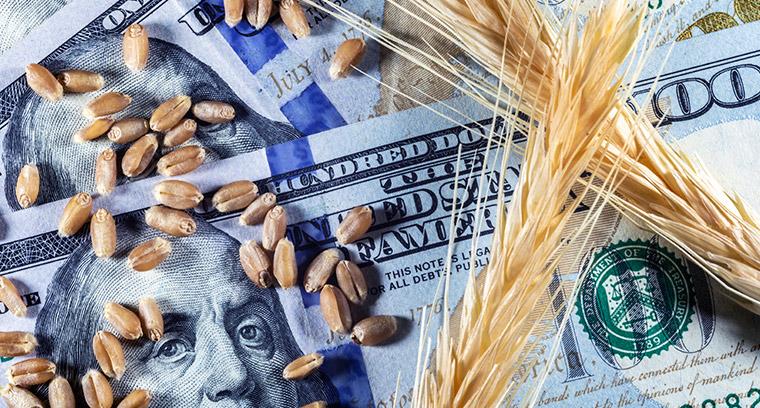Commodity
A commodity is a raw material that has certain characteristics, and is actively traded on organised markets.

2 minutes for reading
What is a commodity?
Commodity or exchange-traded commodity is an economic good, usually a resource, that is traded on an exchange. It is a product of primary processing that is mass-produced and traded. Trading takes place on organised markets, i.e. commodity exchanges.
It is important to note that commodities do not include fully finished final products, real estate or intellectual property. Generally, a commodity is a raw material or primary agricultural product that can be bought and sold. For example, it could be oil, natural gas, cotton or gold.
A commodity’s key features
- Used for mass production
- Used for mass consumption
- High level of standardisation
- High level of persistence
- Transportability
- Interchangeability
- Free pricing that takes supply and demand into account
- No dependence on quality characteristics of the consumer
- Dependence on costs of natural, seasonal, political and other factors
- Fragmentation into batches
Types of Commodity
- Metals and alloys – e.g. gold, aluminium, steel
- Energy commodities – e.g. gas, coal, oil
- Agricultural and agro-industrial products – e.g. grains, coffee, sugar
- Industrial raw materials – e.g. ore, rubber, timber
- Textiles – e.g. linen, cotton, wool
There are about 100 items on the list of exchange-traded commodities. Commodity turnover accounts for almost 20% of the total trading turnover on the financial markets.
Who sells and buys Commodity?
A commodity exchange has sellers and buyers. In the case of commodity contract trading, the seller may be a producer of raw materials – for example, an extractive, agricultural or purchasing company.
The buyers are brokers and traders for onward resale, or firms that purchase raw materials for consumption or the production of the final product. For example, a coffee processing company buys raw material in beans to be processed, packaged and sold to the end consumer.
How Commodity is valued
The pricing of an exchange commodity is based on supply and demand. A deal is struck when the seller's terms suit the buyer. All transactions on the exchange are anonymous, so it is not possible that sellers or buyers have agreed on a price. This prevents dumping. Only after the transaction has been completed will the parties know who the seller and the buyer were.